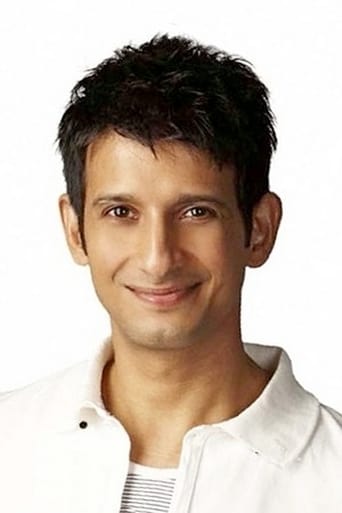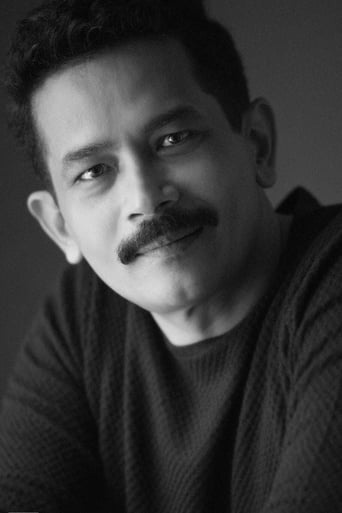AshUnow
This is a small, humorous movie in some ways, but it has a huge heart. What a nice experience.
Adeel Hail
Unshakable, witty and deeply felt, the film will be paying emotional dividends for a long, long time.
Ariella Broughton
It is neither dumb nor smart enough to be fun, and spends way too much time with its boring human characters.
Logan
By the time the dramatic fireworks start popping off, each one feels earned.
gauravsgahlyan
I do not usually write movie reviews, but RDB is a rare gem that needs to be appreciated. I have watched it 5-6 times, and it still makes me laugh out loud and cry every time. Aamir is brilliant as usual, but Siddharth's performance deserve a special mention. AR Rahman created a perfect score for this movie, and even at a near 3 hour run-time, the movie never feels stretched thanks to his music, and obviously, the gripping storyline. A must watch!
jameslinton-75252
This is such an amazing film. It's more than a film. It's a cinematic masterpiece. It engages brilliantly with themes of corruption, independence, patriotism and loyalty.Rang De Basanti focuses on the young British female-maker Sue who travels to India to make a film about Indian Revolutionaries. She casts five young men in the roles and whilst they are initially hesitant, they grow more and more into the roles until they become revolutionaries themselves. They fight for freedom from their oppressive families and their oppressive culture. This was a really interesting backdrop for the film.Stylistically the film is also brilliant. The main narrative is interspersed with flashbacks showing the original Indian revolutionaries.Read my full review here:http://goo.gl/UCWzZ6
Cold Zera
A curious aspect of Bollywood cinema in the first decade of the twenty-first century was its obsession with the past. Shrewd at tweaking the clichés of social chaos, Rang De Basanti is ultimately an academic exercise, full of stand-ins and signifies a kind of Velvet Goldmine for the destructive impact of the Indian Political corruption and chaos, minus the sense of decadent fun. There is an undeniable appeal to a movie that's made to be picked apart and analyzed as much as this one is, where the props seem to be cross-referencing each other, every incident and character has a mirror image, and even the protagonist is played by two people. One just wishes it weren't doing all the work for the viewer.But RDB does more than just correct the historical narrative. The argument that the nation's history cannot be thought apart from aurality entails a re-conceptualization of history itself. Rather than treating the past as a set of facts to be "discovered" and plotted onto a linear timeline, RDB urges us to think of it as a body of disparate, ephemeral fragments that can be narrativized in different ways. History is a narrative composed of (some of) those fragments, interpreted and remixed such that it speaks to the exigencies of the present. The re-configuring of traditional boundaries of time- space in the RDB soundtrack liberates us not only from the oppression of the (colonial and contemporary) state but also, and more importantly, from its narrative about history. Cinematic sound and music in RDB are the primary means of moving from colonialism's gift of "World-history" back to an older, more enchanted relationship between past and present
aserdcerebral
"One leg in the past, one leg in the future, this is why we're pissing on the present." So observes a character in Rang De Basanti. Of course, this is predicated on the assumption that it's men doing all the damage. In a Patriarchal country like the beautiful India, it's more than an implication. There's a cognitive dissonance, a man-made conflict of interests. It's a closed system with two interacting elements; the patriotic and the pecuniary.The film tells its story, one of mistakably dimming relevance, in a very calculated and inviting fashion. The fight for independence from the British, as a historical documentary being made on a zero(denied)-budget by an ambitious British post-adolescent woman, that needs re-enactments, which shall be done by the boisterously youthful protagonists. (They jump drunkenly off bridges where the original young revolutionaries jumped on moving trains.) This dissonance spills out of the narrative and into the film making craft itself; about 75% of the cuts in the film are truly cinematic, impressively invisible, and serve emotion and storytelling, the rest are so hip-hoppy you think Honey Singh is going to burst into the frame. The Dance Numbers are derivatively progressive.A subplot of external conflict, with a clique of militant dogmatists who are offended deeply (and paid heftily to take deep offence) by the 'Western-wannabeism' of the protagonists is inflated and paraded for us to notice, then buried for virtually the rest of the film.A key character crosses over from their side (a big key too, considering he's the one getting the money), gets a role in the documentary, and then only serves as a pair of fists and knees in a plot-hinging fight scene. After that, he's just a diffident extra in the documentary. Anyone paying attention to the story at this point will tell you he has more conflict, both internal and external, than all the other characters aggregated.That wouldn't leave running time for Aamir Khan's comic relief though, would it? But is this a story that needs relief, from what? The premise itself is a tricky compromise enough. I don't know whether it's the New Bollywood way of tickling the audience's ribs, but there's a whole lot of standing-up-and-stomping-around going on, it gets on your nerves, then bites down and gnaws on them.Still, the film is very dramatically effective, and there are enough 'realistic' performances from the core cast to sour-down and hair-up the cutesy syrupy moments. Consider, how the director sets up an in-joke about a television that reacts better to a well-timed slap than a turn of the knob. Without repeating the joke too many times, he hurtles the movie forward swiftly and smartly, and right before the intermission, supplies a Soap Opera proposal we don't want to see. The sly disconnect with which he uses the punchline of the T.V. joke to cut down silly romanticism with grim foreclosure is not only tragi-darkly-comic, it understates one of the movies running themes; "Put your life on the line for your country in this new world, you're not a revolutionary, you're Nuts." Safer to make movies and documentaries about stuff. Apropos, did Tropic Thunder steal its premise from this, strip away idealism and purpose?The message seems to be that, inherently oppressive, colonialism (ancestral to anti-nationalism in a way) is an indelible stain that only permeates wider and changes color with time. I heartily agree. However, wherever you stand on this contemplative time curve, you leave a puddle. Blood, tears, or likely, pxss.Overall, the film is an efficiently constructed, cleverly told and expertly presented crucial bit of overarching history, worth the demand of its running time.






